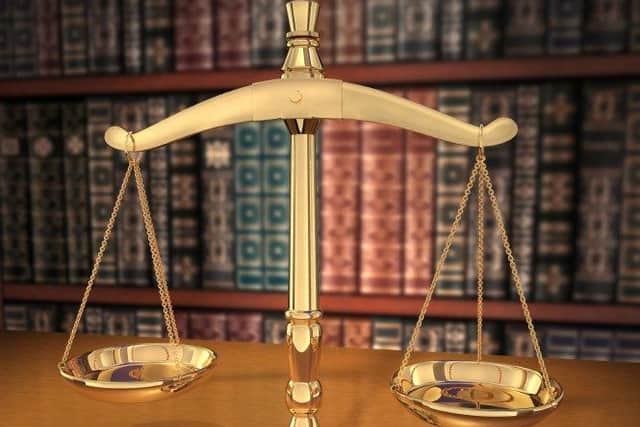Gordon Jackson and John Mulholland: Justice means fair access for everyone


Gordon Jackson
One of my favourite films is … And Justice for All, a courtroom drama with a strong performance by Al Pacino as defence attorney for a judge accused of rape.
I especially like the title. It captures perfectly the essence of a free democratic society based on the rule of law. In this country, we value that but, ultimately, it depends on three vital components: an independent legal profession; a truly independent judiciary; and genuine access to justice.


Advertisement
Hide AdAdvertisement
Hide AdLawyers are critical to the rule of law. Just as no-one can be above the law, no-one can be denied the protection of the law and the right of everyone to a fair trial is absolute. Perhaps that is not totally understood, hence the challenge: “How can you defend such apparently bad people?”
There is no-one I would not defend with vigour to the best of my ability, because I believe passionately in the rule of law. Lawyers might never become popular, but a free society needs us if the rule of law is to survive.
Tragically, there are other countries where people have found to their cost what it is like without the rule of law. Equally, not all countries can make the boast which I am happy to make in saying that we have a truly independent judiciary.
On my travels, I meet people who find it hard to believe that brown envelopes are unknown and no amount of money will influence a judge. But it is true, thank goodness. Our judges have two functions, which they perform without looking over their shoulder at anyone.


Those are to protect the state from the actions of the individual and, of equal importance, to protect the individual from the power of the state.
All this is meaningless, of course, unless there is access to justice for all. Rights are meaningless if they cannot be exercised.
The rule of law is for everyone, remember. We are quite fortunate to have a legal aid system which, although far from perfect, is better than any other I have found. We must, and will, be vigilant in seeing that does not change.
No-one above or below the law, a truly independent judiciary and fair access for everyone.
There it is. Justice.
Gordon Jackson is Dean of the Faculty of Advocates
John Mulholland
Advertisement
Hide AdAdvertisement
Hide AdIt would be easy to think about justice in the Court setting: the individual fighting desperately against the might of the system; the wrongly accused fighting for his life.
However, it is much more than that and much more difficult to define. Having a sense of justice is core to who we are as people.
Across the world, communities large and small, create justice systems. We are trying to recreate on the largest scale what we instinctively feel to be right, even as young children. We have a keen instinct for what is fair and what is not.
Having a just and fair society is more than what might work best for most of us or which gives some of us more rights, protections or freedom to choose than others. It has to be right for all of us.
That is incredibly difficult to achieve. We are complex beings with our personal or national standards and priorities. Our own notions of pride and value which can, and often do, conflict. While justice tries to secure the greater good for all, disagreement is inevitable.
This is why we must have to maintain and encourage a system which allows disputing parties to come together, to assess their situations, their arguments, and seek resolution in a fair and impartial way.
I suppose when we are perfect justice will be perfect, but for now we must continue to strive for improvement, to re-evaluate what we do, to find the gaps and inconsistencies so our system serves all of us.
Justice is more than simply decisions about how to distribute what we value, it is about ensuring that we value the right things in the right way.
John Mulholland is President of the Law Society of Scotland